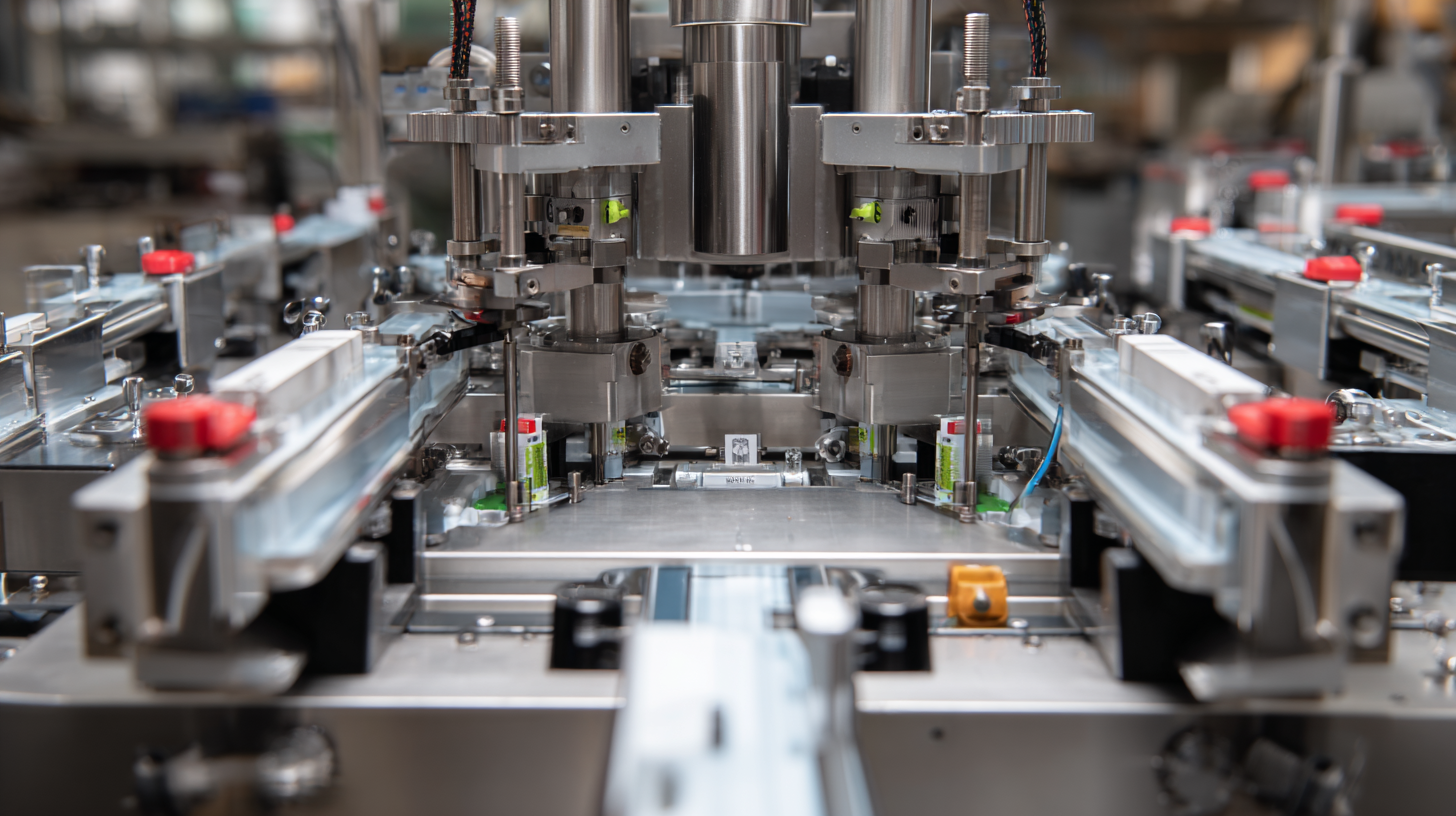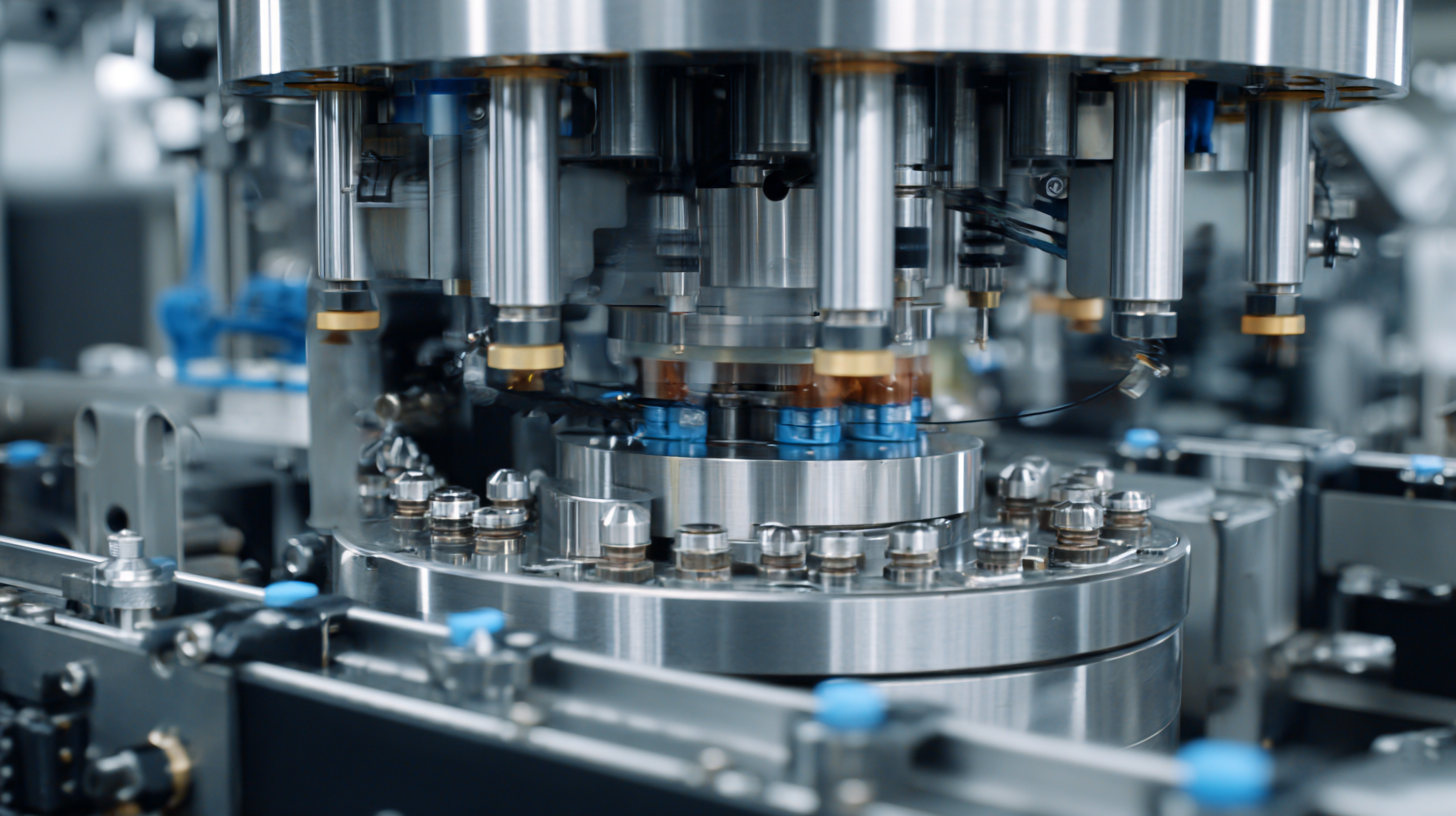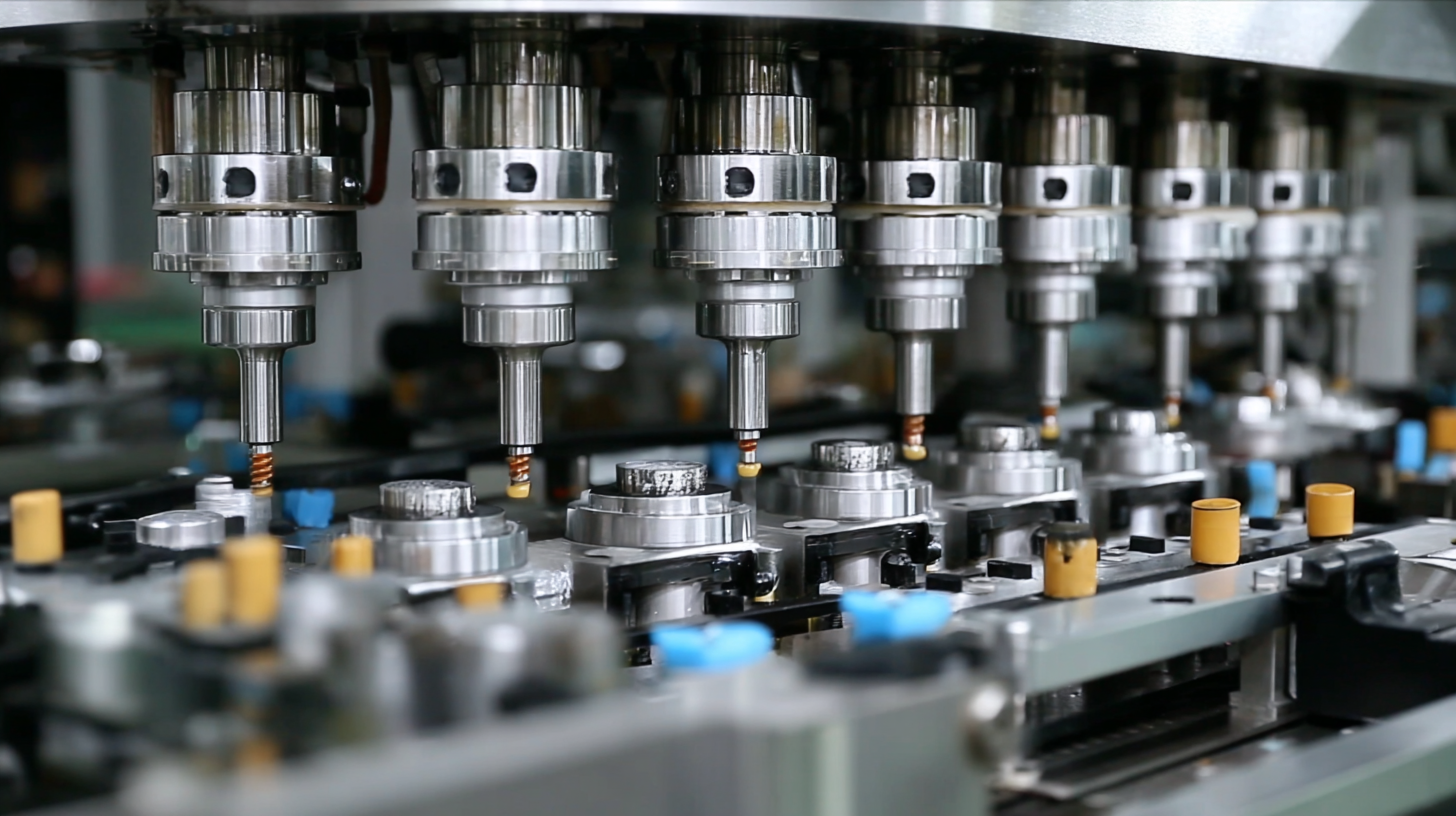In today's fast-paced manufacturing landscape, the significance of an efficient Automatic Filling Machine cannot be overstated. As we look ahead to the industry trends of 2025, businesses are increasingly recognizing the importance of not just investing in advanced filling technology, but also ensuring robust after-sales support and cost-effective repair solutions. These components are crucial for maximizing operational efficiency and minimizing downtime, ultimately leading to greater productivity and profitability. By leveraging reliable after-sales services, companies can sustain the functionality of their Automatic Filling Machines, while proactive maintenance strategies can help mitigate unexpected failures. This blog will explore the synergies between state-of-the-art filling technology and comprehensive support systems, highlighting how businesses can thrive in the competitive market of the future.

After sales support is a crucial component for businesses investing in automatic filling machines. A reliable support system not only ensures that any operational issues are quickly addressed but also helps in maintaining the machine's optimal performance over time. This becomes even more important in industries where efficiency directly impacts profitability.

One essential tip is to choose a supplier that offers comprehensive training during the installation of the machine. Proper training can significantly reduce operation-related errors and improve overall productivity. Additionally, proactive maintenance schedules should be established with your supplier to anticipate issues before they escalate into costly repairs.
Another vital aspect of after sales support is the availability of spare parts and efficient repair services. It minimizes downtime, allowing your production line to run smoothly. Always inquire about the supplier’s repair turnaround times and ensure they provide a detailed warranty for their machines. This approach can lead to significant long-term savings by avoiding unexpected breakdowns and extending the lifespan of your equipment.
When considering the purchase of an automatic filling machine, several key features will enhance efficiency and productivity. First and foremost, look for machines with adjustable filling volumes and speeds to accommodate different product types and order sizes. This flexibility allows businesses to scale operations, ensuring they can meet varying demands without compromising filling accuracy or speed.
Another critical aspect is user-friendly controls and intuitive interfaces. Machines equipped with touchscreen panels and easy navigation ensure quick training for operators, reducing downtime and enhancing overall workflow. Additionally, consider the machine's construction materials; stainless steel options not only resist corrosion but also streamline cleaning processes, which is essential for maintaining hygiene standards in industries like food and pharmaceuticals.
Lastly, reliable after-sales support and cost-effective repairs are paramount in maintaining machine efficiency. Look for manufacturers that offer robust service contracts and readily available replacement parts. This support can minimize unexpected downtimes and ensure that any issues can be addressed promptly, allowing businesses to focus on production without interruptions. Prioritizing these features will lead to a more efficient and sustainable operation.
Ensuring optimal performance of automatic filling machines requires not only investing in high-quality equipment but also adhering to essential maintenance practices. According to a report by Freedonia Group, the demand for packaging machinery is projected to increase at a rate of 3.7% annually, reaching $45 billion by 2023. This underscores the need for efficient machines and the importance of ongoing maintenance to sustain their functionality over time.
Regular maintenance is crucial for maximizing machine performance and prolonging the lifespan of your filling equipment. For instance, consistent calibration and cleaning schedules can significantly reduce downtime caused by malfunctioning components. A study published in the Journal of Manufacturing Processes stated that businesses that implemented structured maintenance programs reduced their operational costs by up to 25%. Additionally, investing in quality aftersales support not only aids in timely repairs but also provides valuable insights on preventative measures, ensuring machinery operates at peak efficiency while minimizing interruptions in production flow.
| Parameter | Value | Notes |
|---|---|---|
| Filling Speed (bottles/min) | 60 | Optimal performance under standard conditions |
| Hopper Capacity (liters) | 100 | Reduces frequency of refills |
| Energy Consumption (kWh) | 2.5 | Cost-effective operation |
| Maintenance Frequency (months) | 6 | Regular check-ups recommended |
| Average Repair Cost ($) | 150 | Varies based on issue |
| Warranty Period (years) | 2 | Includes free repairs |
| Typical Lifespan (years) | 10 | With proper maintenance |
In today's competitive market, efficient operation of automatic filling machines is crucial for maximizing productivity and minimizing downtime. To achieve this, businesses must prioritize cost-effective repair strategies for their automatic filling equipment. By implementing preventive maintenance schedules and investing in regular inspections, companies can catch potential issues before they escalate, ensuring machines run smoothly and efficiently.

Additionally, having a reliable after-sales support system is essential for addressing any unexpected breakdowns. Establishing partnerships with repair service providers who understand the intricacies of automatic filling technology can significantly reduce repair times and costs. Utilizing predictive maintenance techniques, companies can leverage data analytics and smart sensors to monitor machine performance in real-time, allowing for timely interventions and minimized disruptions to production. Emphasizing these strategies not only enhances operational efficiency but also extends the lifespan of the equipment, ultimately leading to greater cost savings.
When investing in an automatic filling machine, understanding after-sales services is crucial for maximizing efficiency and minimizing downtime. Industry studies indicate that approximately 70% of production managers consider after-sales support a critical factor when selecting equipment suppliers. Reliable service not only enhances the longevity of your machinery but also significantly impacts your overall productivity. Thus, evaluating the after-sales experience should be a priority.
Tip: Always ask potential suppliers about their repair response times and the availability of spare parts. It's essential to choose a supplier that can ensure timely maintenance, as research shows that machines left unattended for repairs can incur costs of up to $250 per hour in lost production.
The quality of after-sales services can vary significantly among suppliers. A report from the Automated Solutions Association highlights that businesses benefitting from dedicated after-sales support experience a 30% decrease in abnormal downtimes. Suppliers that offer comprehensive training and ongoing support not only enhance operational efficiency but also empower user confidence in the equipment's performance.
Tip: Look for suppliers that provide training as part of their after-sales package. This investment in knowledge can lead to a deeper understanding of the machine, ultimately reducing the frequency and severity of issues that arise in daily operations.
Headquarters
2980 Scott St, Vista, CA 92081
Phone: (760) 734-4177
Fax: (760) 734-4188
Open: 8:00 am – 4:30 pm
Texas
8051 Jetstar Dr #175 Irving, TX 75063
Phone: (972) 915-6888
Fax: (972) 915-6999
Open: 8:00 am – 4:30 pm
Florida
14231 Jetport Loop. #1 Fort Myers, FL 33913
Phone: (239) 225-4020
Fax: (239) 225-4024
Open: 8:00 am – 4:30 pm